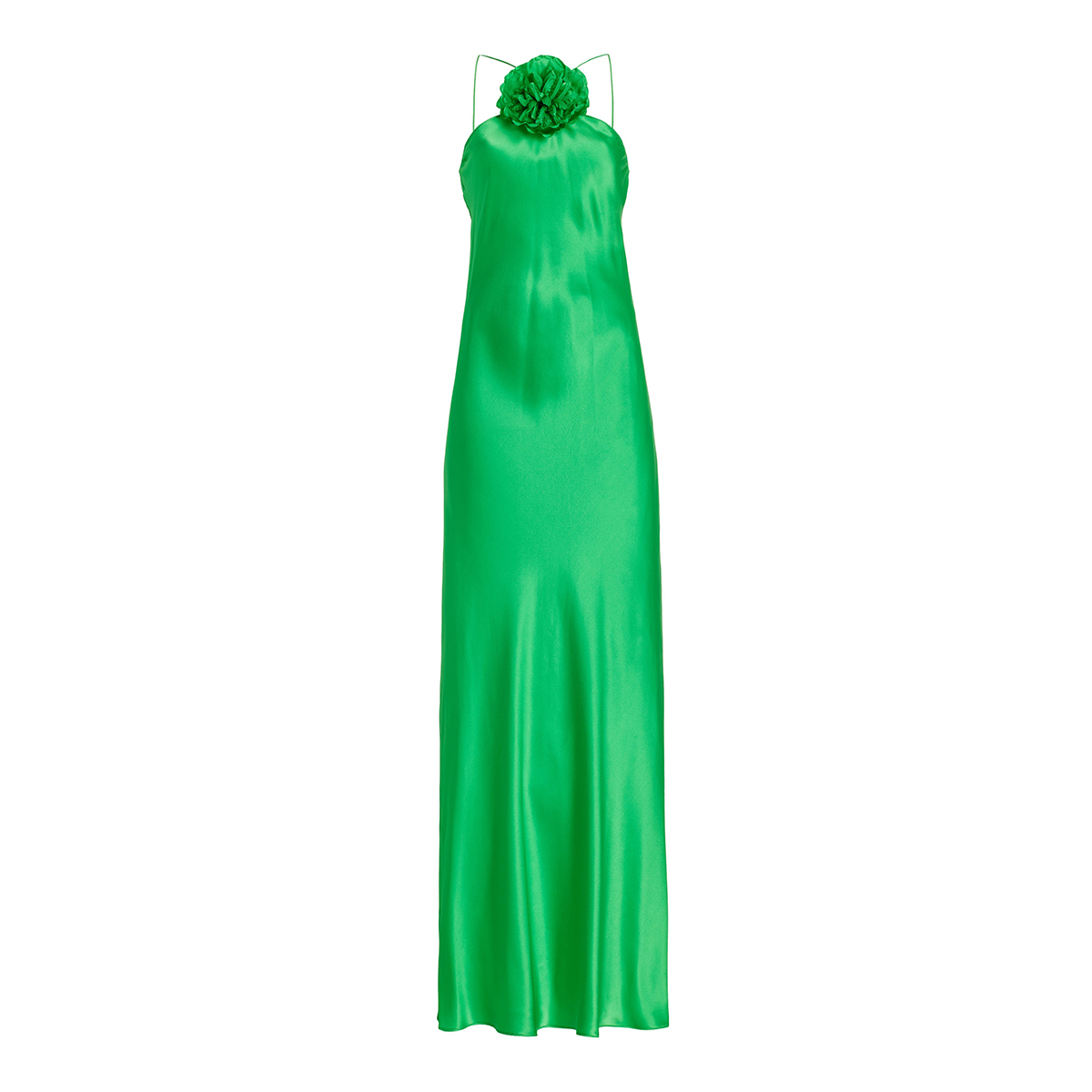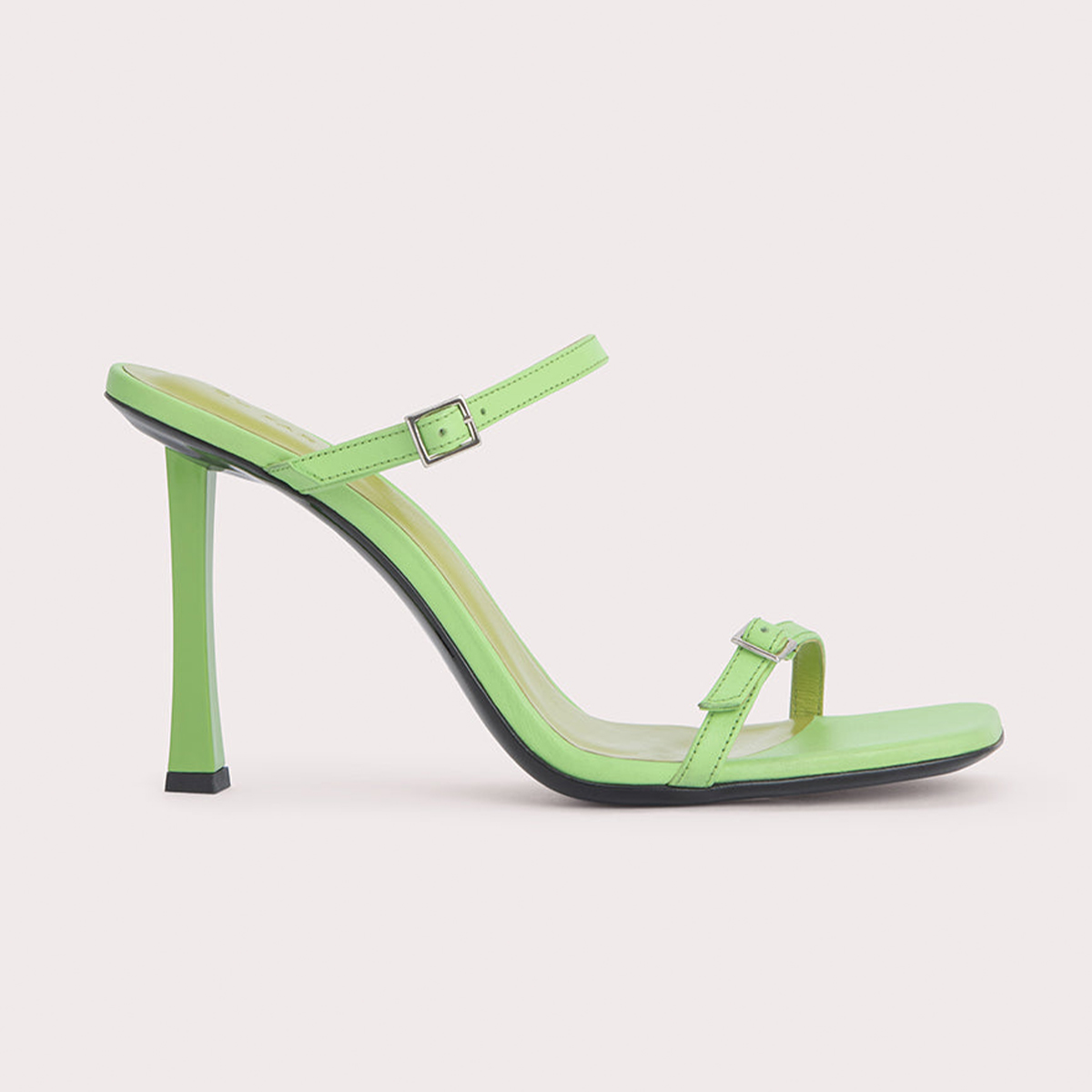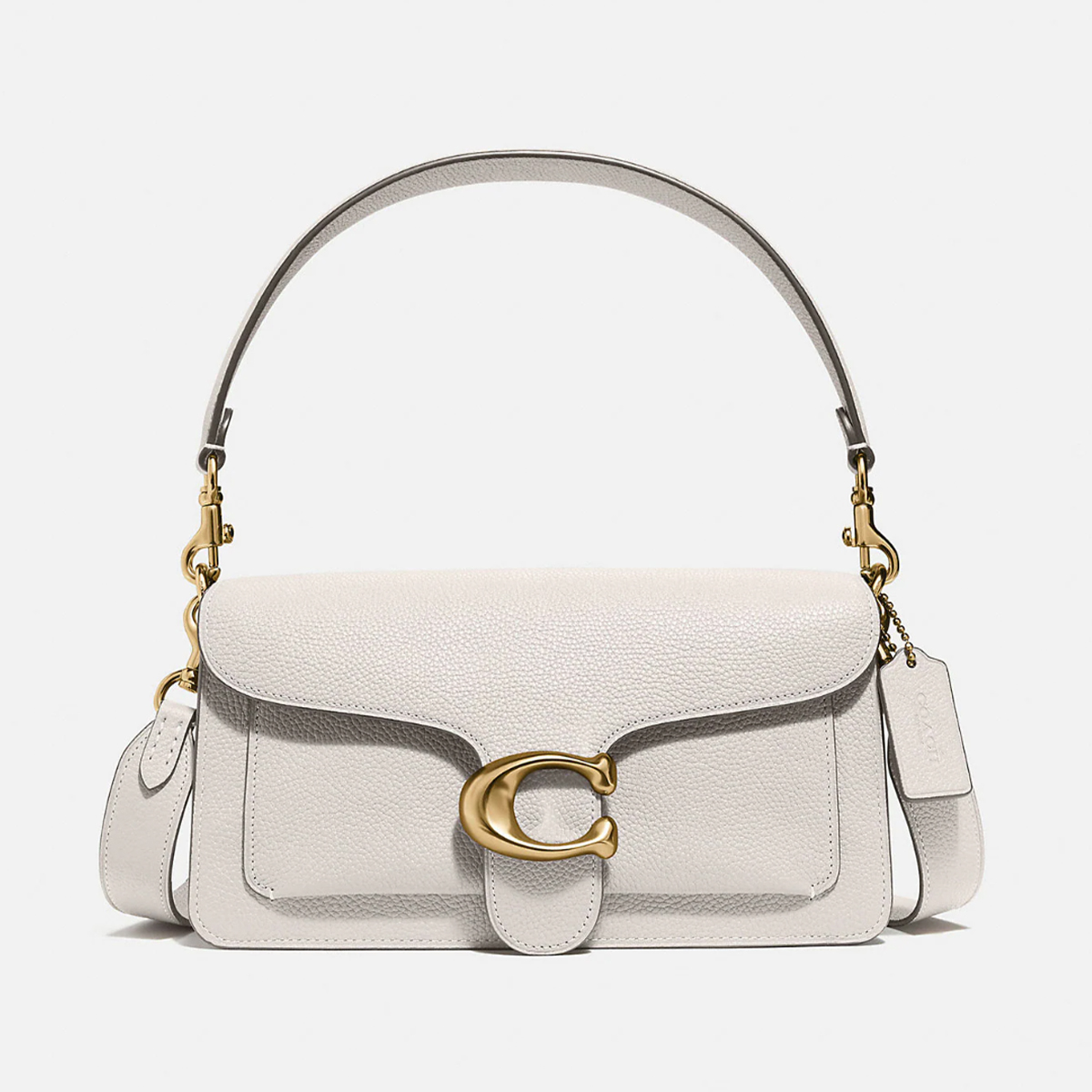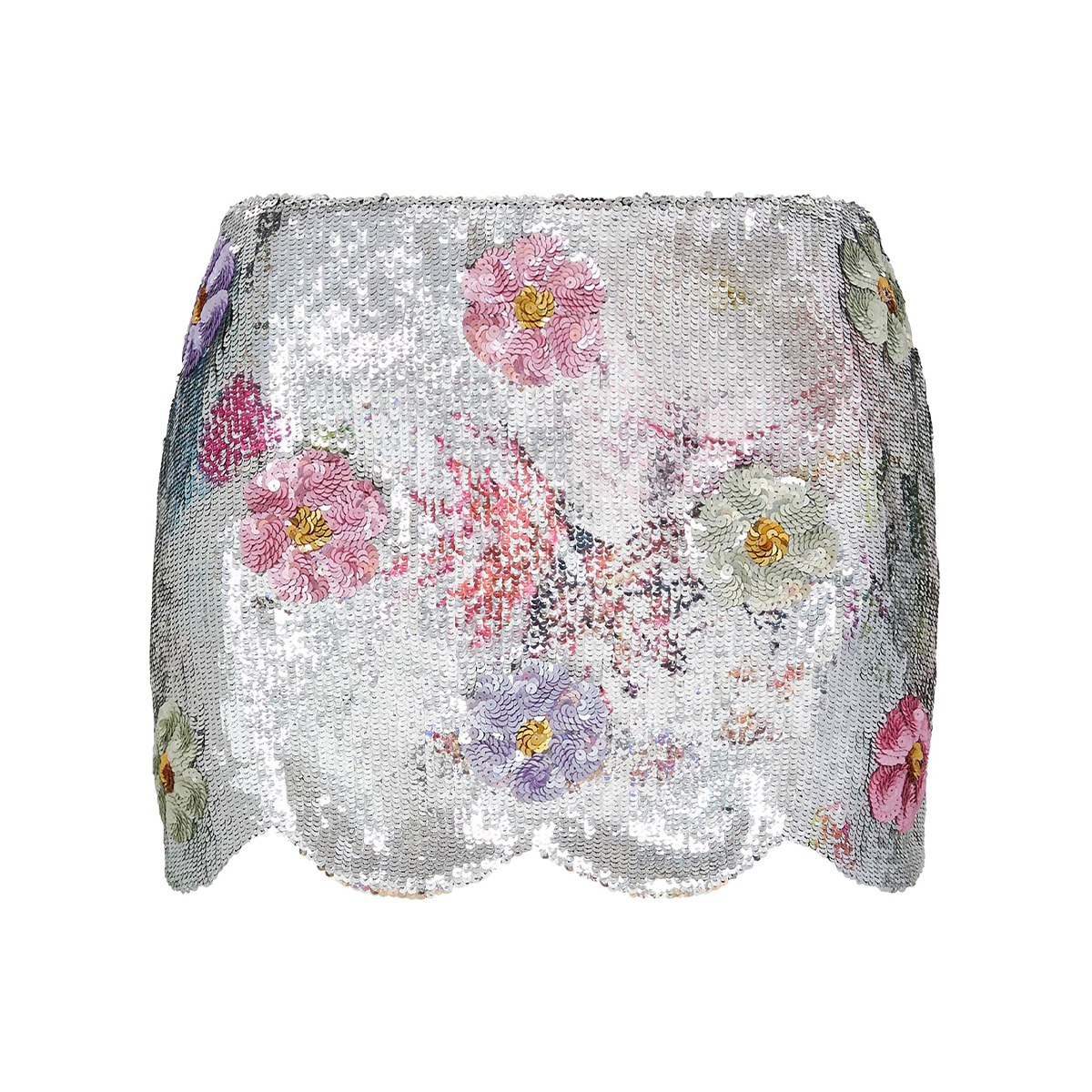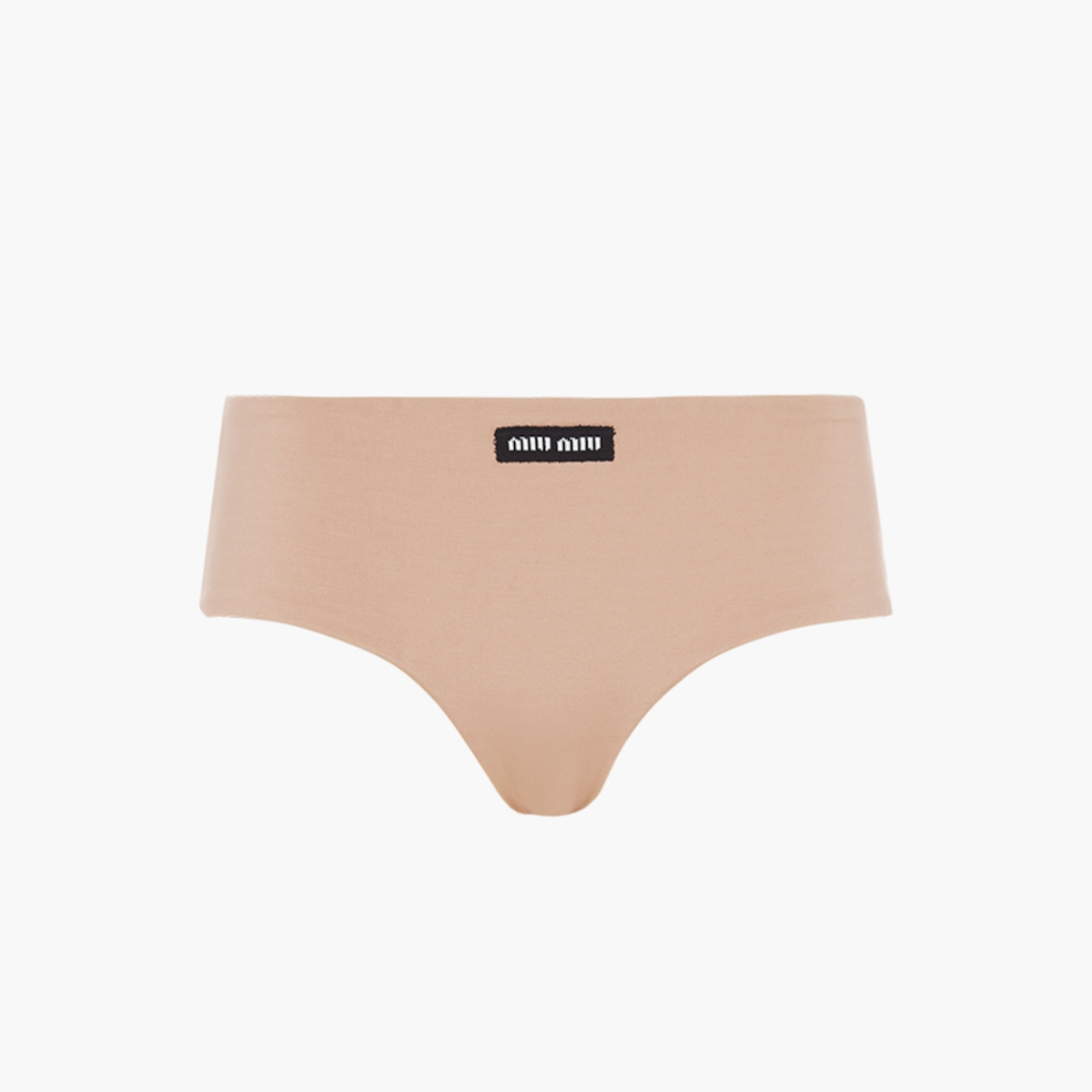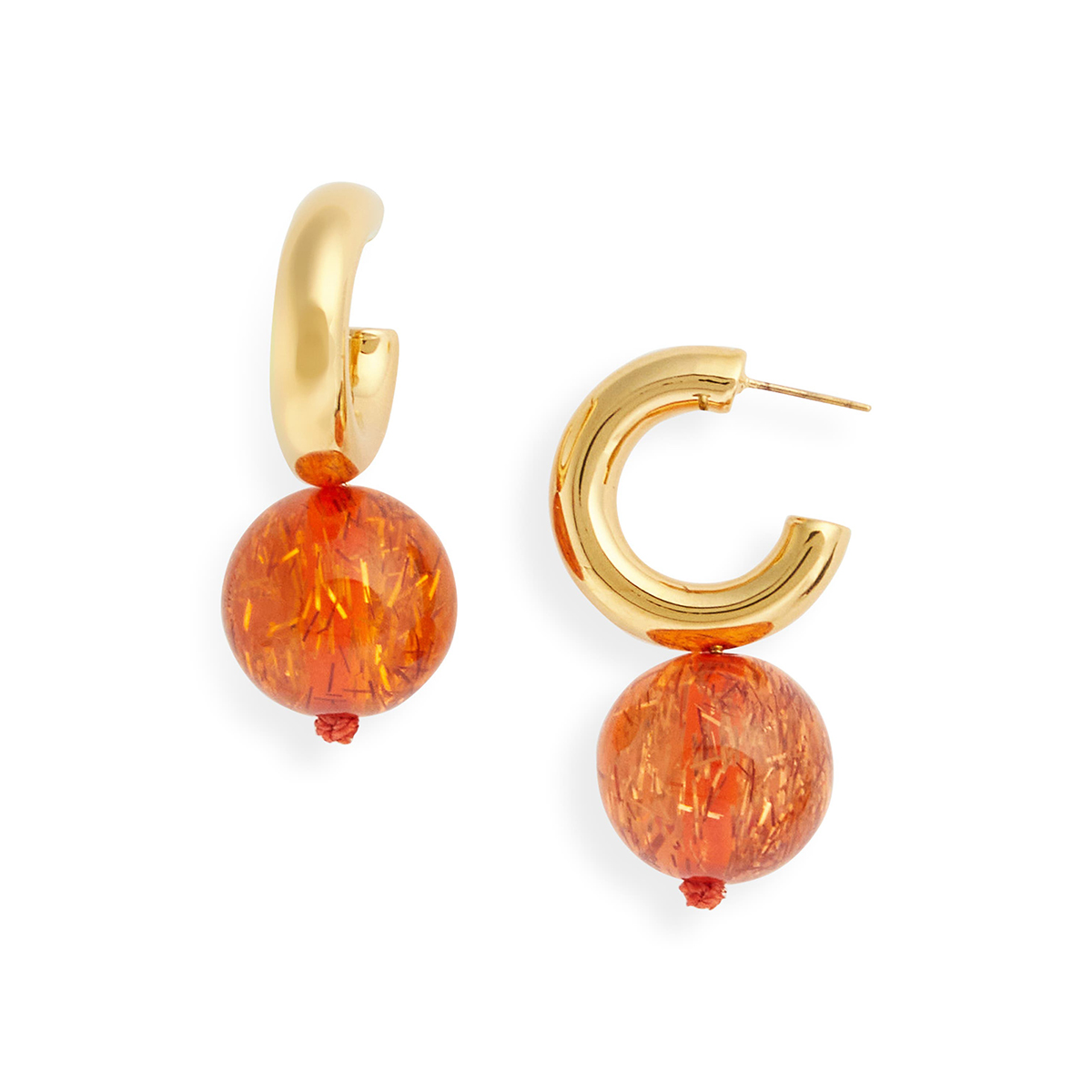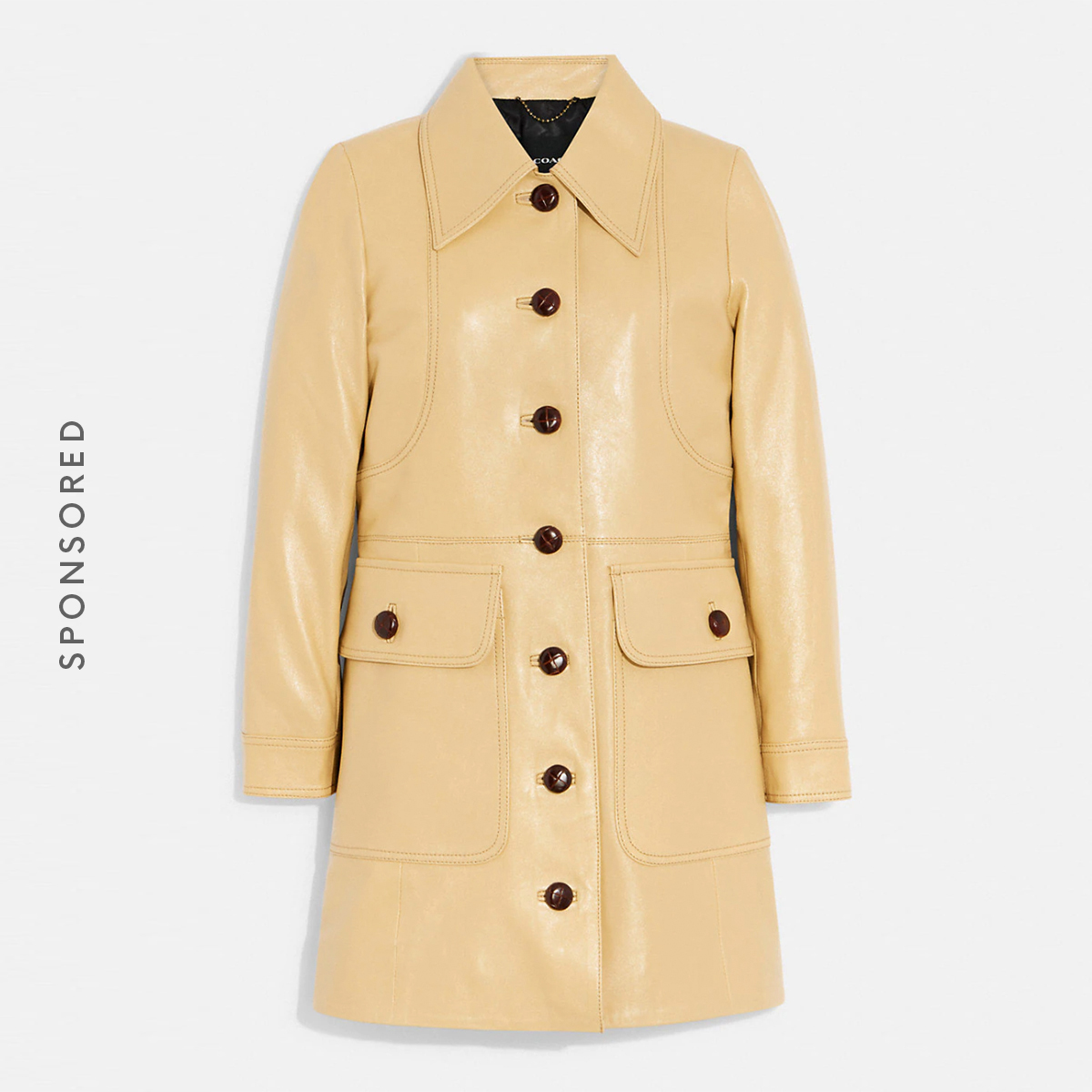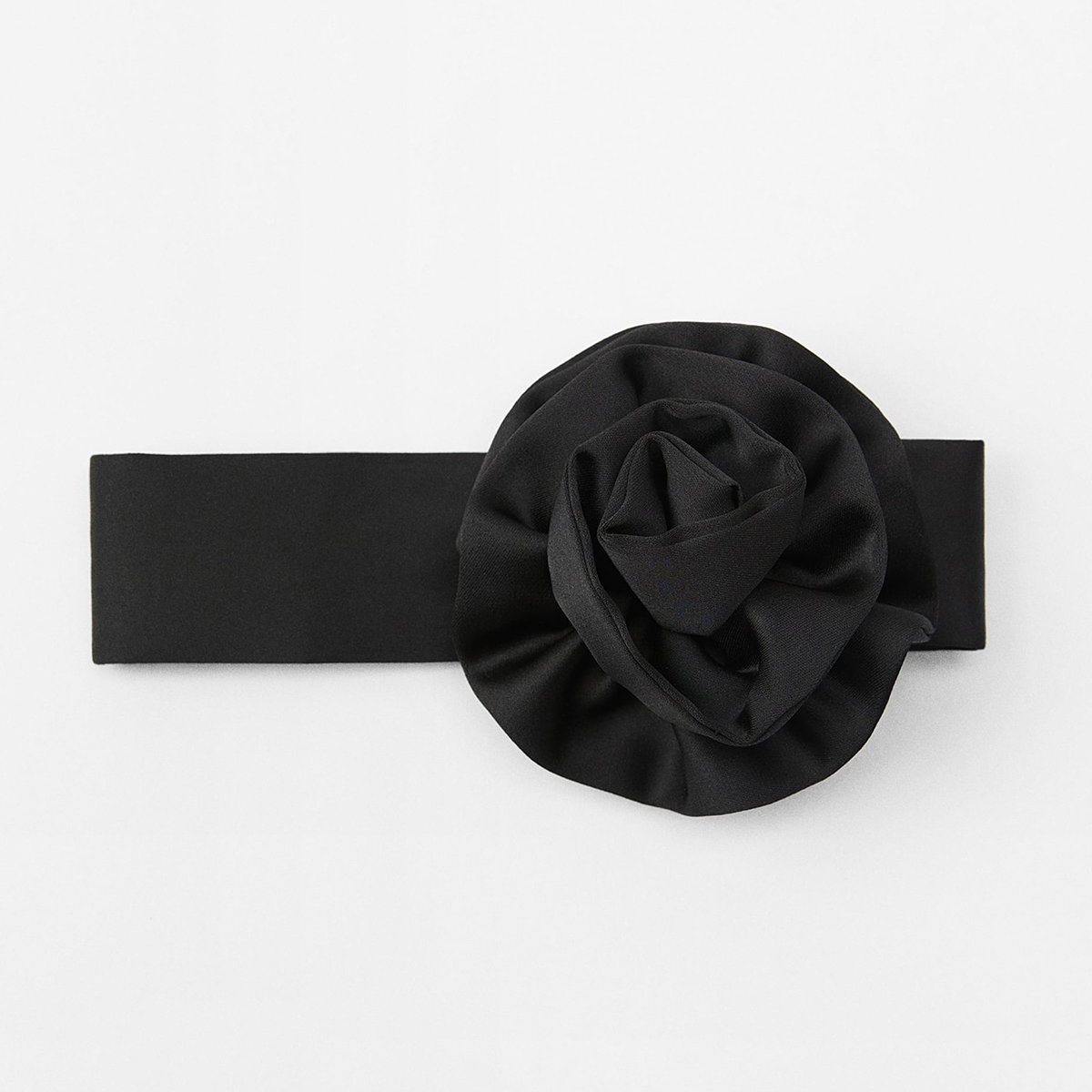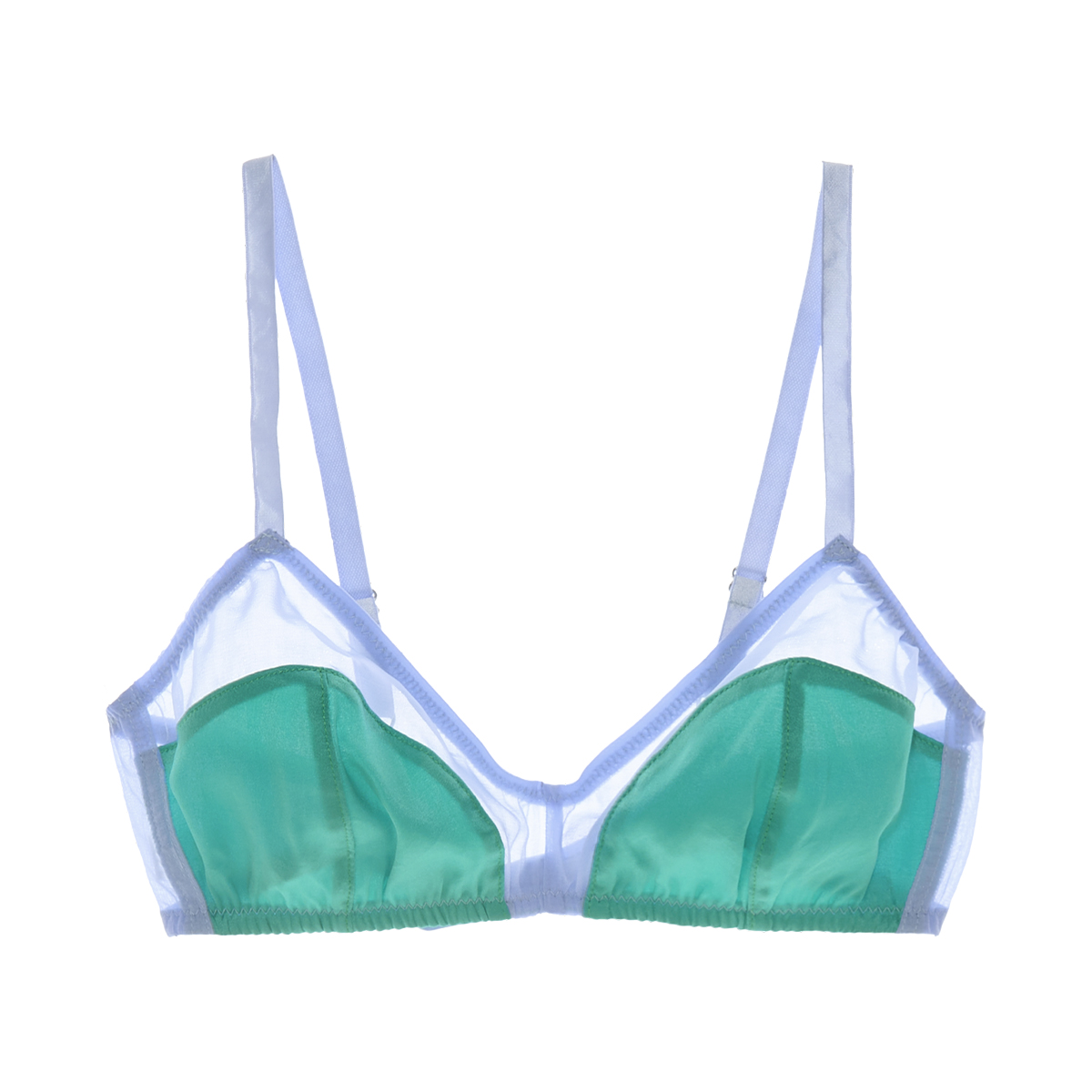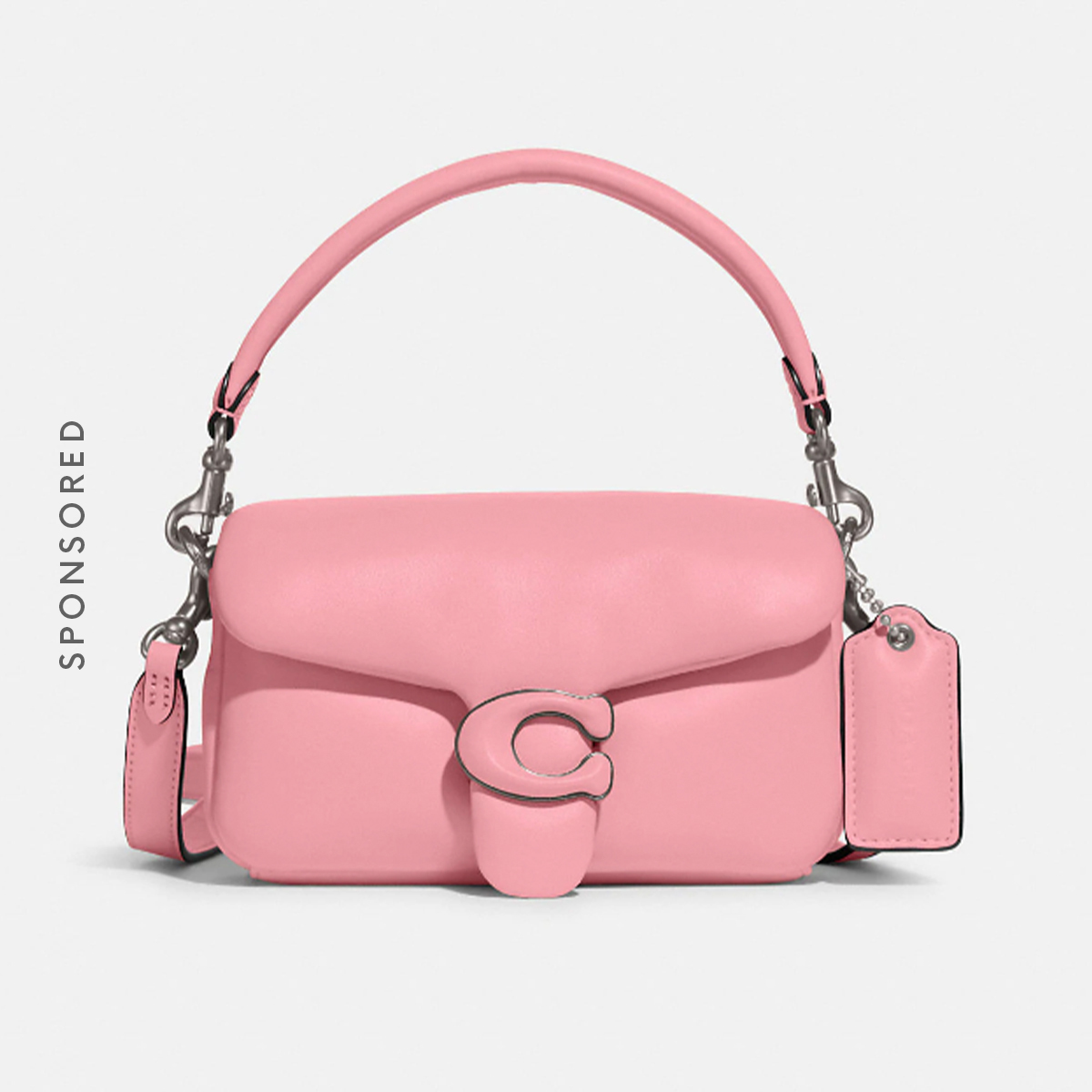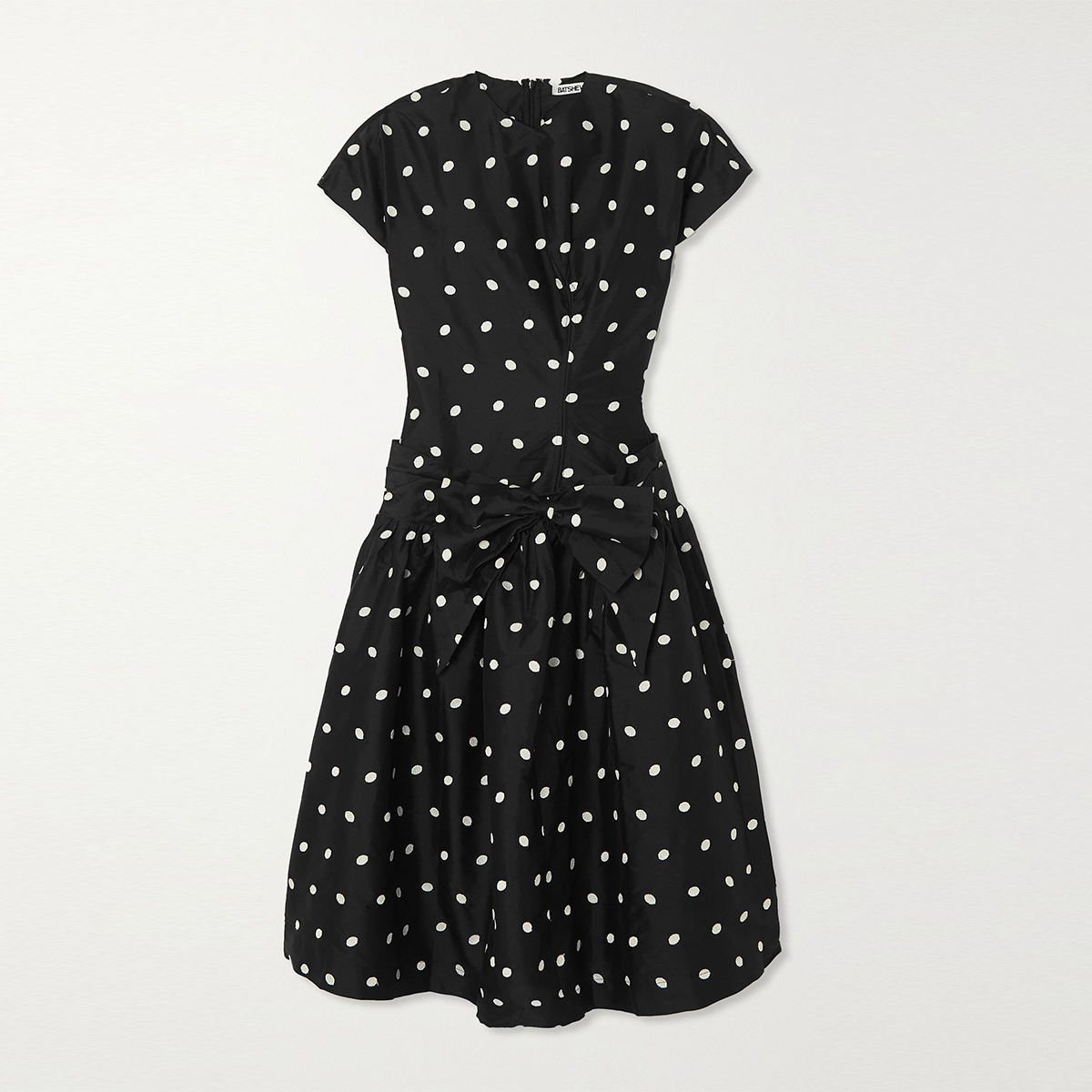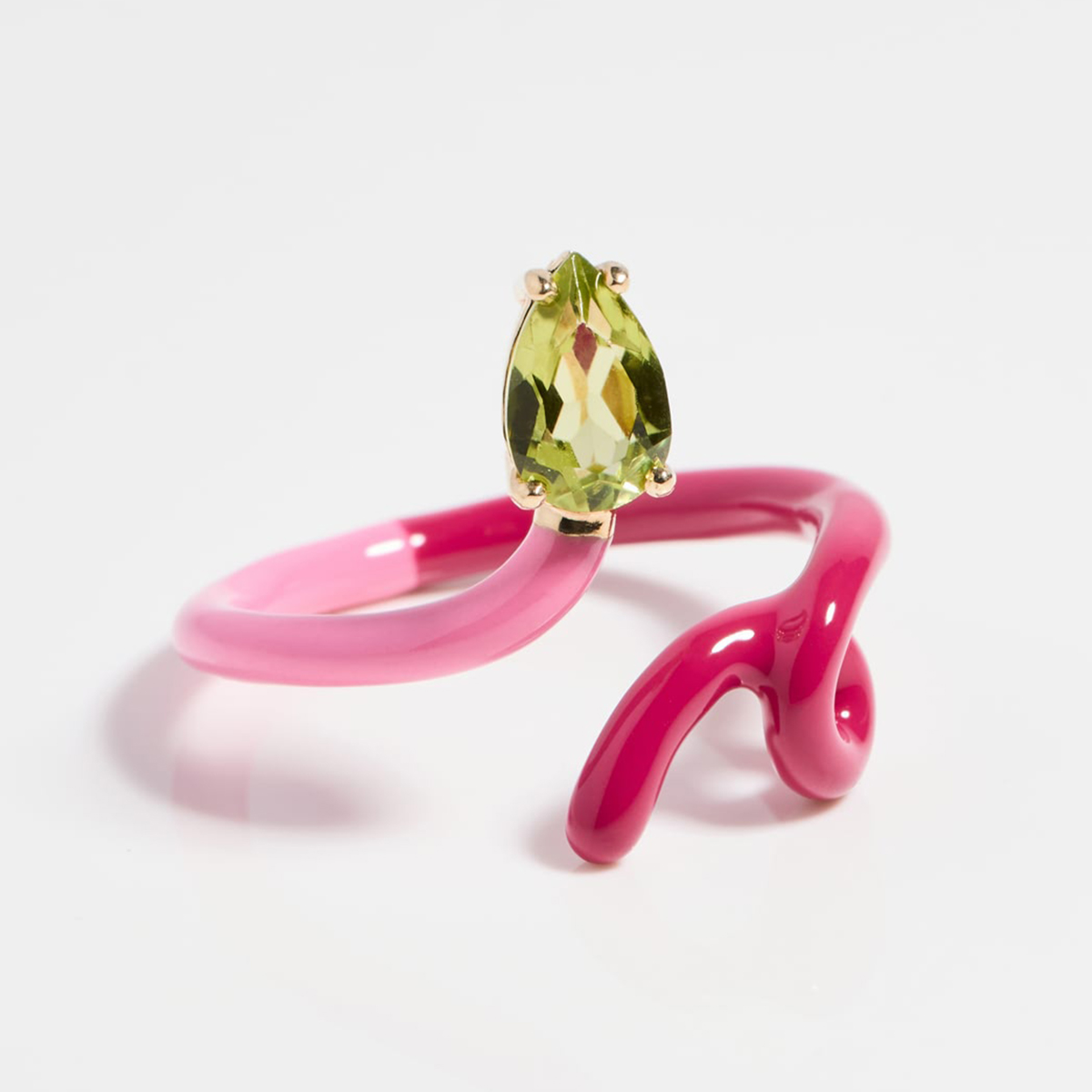

Riley Keough Has Found Her Voice
The year was 2019. Riley Keough was fresh off filming Netflix's psychological thriller The Devil All the Time and looking for her next project when she heard about a series being made called Daisy Jones & the Six. Without knowing any details, she wanted to do it. She just had a gut feeling. After learning that the show was based on the popular Taylor Jenkins Reid novel about a fictional rock band in the '70s, there was no turning back for Keough—the role of Daisy Jones would be hers. Having established herself as an indie darling in Hollywood, earning critical acclaim for her performances in such projects as The Girlfriend Experience, American Honey, and Zola, the 33-year-old had more than proven she could carry the part. There was just the not-so-insignificant detail that she had never actually sung before. But that's the brilliance of Keough. When she sets her mind to something, she truly commits.
Daisy Jones & the Six is a Fleetwood Mac–inspired, rock 'n' roll dreamscape, as it chronicles the rise and fall of its namesake band traversing through love triangles, drugs, and fame in the L.A. music scene in the late '70s. Alongside a fantastic ensemble that includes Sam Claflin as Billy Dunne, Camila Morrone as Camila Dunne, and Suki Waterhouse as Karen Sirko, Keough is an electrifying force in the titular role of an aspiring singer who will stop at nothing to accomplish her dreams. It's Keough in one of her best performances yet.
The day before the limited series made its long-awaited premiere on Prime Video in early March, Keough and the rest of her on-screen brandmates had a number one record on iTunes with Aurora. That morning, she sat down with co-star Nabiyah Be, who plays Daisy’s BFF and disco queen Simone Jackson, for our April cover story to talk about finding her voice, prioritizing her mental health above all else, and her ambitions as a performer, producer, and director.
Nabiyah Be: Hey, sis! How are you?
Riley Keough: I'm good, honey. Where are you?
NB: I'm home. I'm in my little studio/office/bedroom. How are you feeling? The show comes out tomorrow. Today's officially the last day we can talk about this without people knowing what we're talking about.
RK: I know, and the record came out, and apparently, it's gone number one on iTunes.
NB: Yes, it has!
RK: It's so crazy. I can't believe it.
NB: How did you first hear about the show? How did it come to you?
RK: I heard about it through my agent, Ali Trustman. She said there's a show called Daisy Jones & the Six. I didn't know what it was about, but I liked the title so much that I just had this feeling I was going to do it. I was like, "I want to do it," and she was like, "You don't even know what it is." And then she was like, "Okay, I think it's based off of a band in the '70s. And I was like, "I want to do it—get me all the info," which I don't typically do. Typically, I need to read a script, and I need to meet the director before I'm like, "I want to do this," but I don't know. There was something about it that just felt like I knew that I was going to be cast. So it was very weird.
NB: You mentioned this feeling a few nights ago in our panel, this cosmic feeling. It's probably your explanation behind the phrase that's going around that you are born to play this role. But I'll let you put your own words to it. Do you want to expand on this feeling?
RK: I think a lot of artists feel this way, but when a role comes to you, there's something very spiritual and magical about it, and it feels like … everything's coming at a certain time. And it's the exact right time for that thing, or there's a part of me that I'm feeling like I want to explore, and then I'll get a role that matches that somehow. I've done a lot of very intense, dark independent films, and I was really feeling like I wanted to do something that was fun and big and entertaining and not super dark.
Of course, there are moments in Daisy that are more serious, but as a whole, it felt like something you could put on to escape your life, and that's just what I really felt like doing in that exact moment. Then we pushed because of the pandemic and everything. When we ended up shooting in 2021, it was even more so that I needed it because I had a really hard time in the pandemic with losing my brother, and it was such a gift to be able to come out of that and my first job being with all these people who felt like family to me, who I knew already so well, and who I felt so supported and loved by. The universe allowed me to have this thing to help move through a really hard year for the country, for the world.
NB: I can attest to you fully embodying this wounded healer transforming rocks into diamonds. I definitely learned a lot from you and your sense of humor and being able to stay in your light. I've been hearing everyone's audition stories, but I don't know what you did. Did you sing for your audition?
RK: Yeah, I sang. Well no, I acted first. They were like, "Let's make sure you're right." I did three or four scenes, and then I retaped again, and then I went in, and they were like, "Okay, we like your acting for Daisy, but can you sing?" I sent a video of me singing really softly. I was singing "Wild Horses," I think, and they were like, "That's cute, but it's too soft. You have to belt and sing louder." I had only ever sung falsetto with my husband for fun, so I was so frustrated because I thought, "I've come this far down this road. I've auditioned like five times, and now, I'm not going to make it through to the last round because I can't project my voice, and I don't know how to belt." I sat in my car, and my agent called me, and she was like, "Just try. Just try and sing a Lady Gaga song," and I got mad. I was like, "You can't just try and sing a Lady Gaga song. I've never sung in my life. I don't know how to fucking belt!" Coming from having zero experience, I didn't even know how to get my voice up loud, you know? So I sat in my car, and I think I tried to belt something. I don't remember what it was, and it sounded so bad that I just sat there and started crying.
NB: Oh, sweet lord!
RK: I really don't like not being able to do things, so I was frustrated. I sat there, and I was just like, "I can't belt, and it's so annoying because if I had time, maybe someone could teach me," and my agent said, "Well, why don't you just go to a vocal coach?" I always had it in my mind that you either have it or you don't. So in my mind, I was like, "I don't have it." Surely, people who can belt know they can belt or just sing loud or project more. They gave me a list of songs to try, and it was so bad. [The coach] was like, "Push from here and use this and breathe here and do that." And I was like, "Fuck man, I can't do this. I don't understand." I went home, and all of a sudden, the universe dropped Lynyrd Skynyrd into my head, and I started humming it. It was the song "Simple Man." It just came into my head as I was walking around my house, and I said to my husband [Ben], "Can you play 'Simple Man' by Lynyrd Skynyrd?" The next day, I went back to the coach. Ben learned the song, and we recorded it. And I was able to belt or project loudly. So I sent it in, and they were like, "Okay, great. She can come into Sound City Studios for the last round." And I was like, "Ah!"
NB: There's a certain feeling or expectation that comes from being born into a musical family. How has your relationship to music changed? Were you able to find a different sense of joy and pleasure with music now that you found your voice?
RK: I think one thing that was really different for me and you, for example, is I never wanted to professionally be in music. If I had, I think I would have felt pressure. Because I wanted to do film, it felt a little bit removed. So with this, my attitude going into it really felt like I was going to try something, and if I fall on my face, so what? I had a sense of humor about it, and I know that I'm not good, and we're all acknowledging that I'm not starting from a really strong place. To be honest, I didn't have much family pressure, but I felt pressure for myself to not want to fail at something that I tried really hard to do. I would have been really frustrated with myself if I couldn't do it because I felt like I had enough of an ear for music. I can hear harmonies. I've always been able to. I have rhythm. I have the basics. It just became about wanting to do something that was really hard for me and didn't come naturally. But … if I wanted to do it professionally, that would have been very different.
NB: It was very healing for me to experience that through you—not being so attached to the result but still caring enough to do your best.
RK: And that's something that I want to apply to everything. Always do your best, and if it's not good, try again. It sounds very simple, but…
NB: On paper, there's a lot of Fleetwood Mac inspiration behind the band. For Simone, there's a lot of Donna Summer and Diana Ross. Did you have your personal artists? And did you have people that you would channel just from being present and openhearted? I had a lot of that as well.
RK: I watched so much that it certainly got in my mind. I always like to overload with information, and then it comes out subconsciously in a way. The biggest thing for me was getting the dialect of the time and the way that women would move and the swagger of that time. That's what I mostly watched videos for, to see the way women would turn their hair or how they would hold themselves or talk in interviews and the dialect of that time and making sure that I didn't sound too modern, because I can have a modern Valley girl accent sometimes. The California accent in the '70s was so different from our current accent.
It's interesting because something that I struggled with was the way that Daisy was written was very liberated for that time. And a lot of the women on stage weren't as physical [and] didn't move as much—the white women anyway. Stevie Nicks would twirl a little bit, and Janis Joplin would get a little crazy, but other than that, a lot of them would just stand there and vocally perform and move a little bit, but there wasn't a lot of crazy dancing like it said Daisy does in the script. She was written ahead of her time in terms of her stage presence.
So I was constantly having to go, "Okay, what's a level of this that feels believable?" If she was on the floor straddling a guitar like you would see women doing now that are very sexually liberated, it wasn't tracking with any of the videos I was watching with female performers. Who I was watching was Linda Ronstadt, Joni Mitchell, Stevie Nicks, Emmylou Harris, and Suzi Quatro, those types of women. But I also started watching men because I felt like Daisy had moments of a more masculine swagger in the later episodes when she's wearing more furs. I would watch Jimi Hendrix or Led Zeppelin, and it becomes a little more rock 'n' roll. What about you?
NB: For me, there were the big three: Donna Summer, Diana Ross, and Chaka Khan. But early on, we really were studying the background vocalists that made the genre, like Linda Clifford and Claudia Lennear, women who were big voices behind every rock band. You mentioned the furs that [Daisy] puts on later. Our girl [costume designer] Denise Wingate pulled off about 1500+ looks. What was it like for you collaborating with Denise?
RK: It was so much fun. I don't ever really get to be that involved in the work, especially if I'm not producing. It was so gracious of her to let us all have so much input because I'm sure the amount of opinions she was getting could have been really annoying. She was so respectful of our perspectives on the characters. It got to the point where I was so comfortable. If I put something on and go, "I don't like this," she'd go, "Great, fuck it." And that was a great relationship to have when you're building the character. Because she was like that, I really feel like I had a contribution in Daisy's style evolution. All the department heads were like that—makeup, hair, wardrobe. They were very respectful of our visions. Being able to have that much input on the growth of the character was such a cool experience. I've never really had that before.
NB: Yeah, I felt the same. She made something from scratch out of a Chaka Khan picture.
RK: I sent her this photo of Cher and was like, "This is so cool, this vibe," and she had it made. That was so fun. I need to find that photo, actually.
NB: It's pretty special. What were your initial impressions about the Daisy-Simone dynamic?
RK: You know, it's interesting. There are so many interesting relationships in the show. You want to go into depth on all of them because they're so complex. I think one of my favorite conversations that we had when we were prepping was, What does that look like for this white woman and this Black woman to be such good friends in the '70s? And how common was that? And what was that relationship like?
Having those conversations with you in prep were so helpful in terms of establishing that, no, this wasn't like your everyday circumstance, and there were nuances in that relationship that, even if they weren't said, I was constantly thinking about while playing all of our scenes. It's a beautiful friendship, and as the season unravels, you get to see the side of Daisy that isn't aware of the nuances and is privileged in saying the wrong things and doing the wrong things. And I think that was probably really common in the '70s. It's also interesting to go back in time with these kinds of topics and undo everything I know.
NB: Yeah, that was a big part for the two of us. One thing that helped me—the question that you posed a lot—was why Daisy goes toward Simone. But how does it go the other way around? And we also spoke about how Daisy has been observing Simone onstage. And from the stage, Simone can read the room and see who energetically holds their ground, who stands in their authenticity, and that's just really magnetic.
RK: Yeah, it was great because we really explored the depths of their relationship. And then again, we went back to the simple thing. … Sometimes, there are just people who you see across the room, and you're like, "Oh, I want to talk to that person." So I love their relationship, and I think the last few episodes with Simone and Daisy are my favorite.
NB: Do you feel like you grow as a person with some scenes that might be emotionally challenging or challenging for other reasons? Or are they just burdensome and work? Do you find that inner pleasure from them?
RK: That's a really good question. There are some moments where I'm like, "Oh, I really needed to explore that moment." And I really enjoyed that, and it felt cathartic. And there are some moments where I'm like, "Oh, I don't want to open that up right now," you know? When I'm having moments where I don't want to open something up, I've actually become really good at taking care of my own mental health. I will put myself first. I won't put my performance first, actually. I have had to do that because I've had a very difficult life in many ways. So I take care of myself, and it's case by case with the scenes. I always want to be open, and it's always authentic because the depths in which I'll explore it. I'll take it as far as I can without damaging myself or my mental health.
NB: Absolutely. I learned from osmosis. I don't think I'm very good at that yet, mostly because I've done a lot of theater. So it's like, here are three hours of my life, and then I'm done.
RK: Yeah. That's because the nature of film is you have to do it so often—over and over and over again. It's a complicated balance because you need to give your authentic self and authentic emotions to the character on the screen or else it's not going to penetrate anybody. But also, it's a difficult job emotionally when you're putting yourself in these places a lot. You have to find this weird balance of taking care of yourself somehow. For me, a lot of that actually comes when I go home, and I have rituals like meditating or laying in the shower or trying to let it go for the day and not carry it into my sleep.
NB: I felt resonance and connection to you because I could see you were someone who prioritized reminding yourself that you're a spiritual being living this life on earth, not letting yourself be taken in by the bullshit. Okay, I want to talk about Felix Culpa. You have a production company with your homie, best friend, and producer Gina Gamell.
RK: We started our company a few years ago, and we've been writing together for a really long time and always planned on directing together. The minute we became friends, we both were in a place where we wanted to start a company and produce films. So we raised money and went around and pitched our ideas and got our company running. We're currently shooting a TV show in Canada and just had a film at Berlin, which is so cool.
NB: As a producer but also as an artist, do you go through any existential criteria to choose your projects and the stories you want to tell?
RK: For sure, because you want to have an ethos, and you want to have a mission on this planet to put things out in the world that you feel are doing something. So it's constantly a question of, What does this mean? What does it mean that we're putting this out into the world? It's a lot of existential conversations like that, where you're like, "Is this a story we feel like the world needs, and why?"
Sometimes, it's pure entertainment, and sometimes, it's a really profound message. You spend so much of your time and life producing the film … especially for Gina because she's the on-set producer. She's dedicating her life to these stories, so we have to love them.
NB: Yeah, as someone who is a big consumer of Indigenous culture, I was so moved when I saw your directorial debut, War Pony, and I was so happy I got to see it before the world saw it. What kind of culture do you consume? And what do you want to see more of when it comes to TV and film?
RK: I certainly want to see more Indigenous content and written, directed, produced storytelling by Indigenous people. Gina and I are huge allies of the Indigenous community, and that's a priority for me. What Sterlin Harjo has done with Reservation Dogs has really changed things for that community, so that's something that would probably be a priority for me if you asked me what I want more of in the world, for sure. But it seems to be slowly but surely happening. It's about creating more opportunity on the ground in the community. That's where, to me, the work is.
NB: I saw an interview where you mentioned that your initial ambition was to direct. I wonder how it feels now directing after you spent so many years acting. How has the pleasure shifted for you when it comes to all the different hats you put on?
RK: It all satisfies different parts of me. I love performing. It might be my number one, but I love writing, too, and I also love directing. But it's not the same pleasure. It's not the same enjoyment. I can get over-exhausted with one thing and then want to do another thing. I get bored easily, and I like switching it up. So if I just get off a long job of acting, I get more in the mood to write or direct or produce. My job in our company has been more overseeing than it has been on-the-ground on-set producing, which Gina does because I'm often on set acting. Even when we're producing the show, I'm there all day acting. I would like more experience just going and being an on-set producer as well. I enjoy all of it.
NB: It's very Gemini of you.
RK: It depends on the day. Ha!
NB: I'm going back to fashion. How would you say that your sense of self translates into your style and your self-expression in general?
RK: I think I'm very malleable, and it's super Gemini, again. I have days where I'm like, "I don't feel inspired to wear anything—I just want to wear a T-shirt and pants and sneakers" and then another day where I feel really inspired to put a whole look together. I'm very inconsistent.
NB: I like that about you. How do you feel about social media now that you're a TikTok girl?
RK: That is an interesting question. I really miss how things were in terms of communication when I was growing up and how it was a novelty to have a phone conversation at night on your landline. I think social media is a very cool thing and a way to create a lot of outreach and change.
But I also worry about how much of our time is dedicated to our phones and not our lives. With the younger generations, I can see that kids' lives are on their phones, and that makes me a little bit concerned for their mental health and for having life experiences and living in the real world. It's extremely addictive.
So it's a conflicting thing for me because I think that spiritually it's very important to be living in life in the moment. But at the same time, it's very useful in a way to connect people. It's done something really beautiful for people, where they can have a platform to share their art and their videos and their things and create these huge followings online, and there are so many more people who are TikTok stars and online stars because of it.
There's this weird thing where, back in the day, there used to be like 10 famous people, and now, there's a million. But there's something cool about that because… I'm getting a little existential now, but the idea that anyone is more special than anyone else is really silly. So in a way, social media gives everyone that opportunity to be like, "Here's my story."
NB: Yeah. It deconstructs…
RK: It deconstructs celebrity culture in a way because everyone's a celebrity. I think that's the biggest fucking trick of everything is that nobody is more special than everybody else. We are all equal. That's the silly thing about being in these situations where you're doing interviews and everyone's wanting to talk to you and treating you like you're something more special than anybody else. It's so ridiculous. … We need to get to the point culturally where we realize that we don't need outer validation, or we need to try and cultivate it ourselves without Instagram likes and TikTok views.
NB: So to finish off, what would you say were the top three biggest lessons in your heart with the whole Daisy Jones experience?
RK: It was the first time in my life that I was like, "I'm going to really be present every day and be super grateful for every single moment that I get, whether it's challenging or not." And I feel like I effectively did that. There wasn't a day on set where I was not really conscious of how I was feeling in the moment.
Also, I worked really hard at something that I wasn't good at, and I was proud of myself for doing something that didn't come super easy to me. Being able to achieve something like this … with Lyme disease was like… It would prove to myself that I could work really hard because it was a really rigorous schedule, and the rehearsals were really rigorous. And then the performances were really hard. Being able to pull that off and having full issues and having to do all that, I feel like I achieved something that, in my mind, felt like, How can I do that?
NB: And I will say that walking into set production, whichever space you are in with that level of consciousness, really made justice to the responsibility of what being number one on the call sheet is because energetically that's the kind of message and presence that you would also give us.
RK: Oh, that's really sweet. Thanks, Nabs.
NB: Thank you. I love you, and I respect you profoundly. And I can't wait for the world to feel you and your light even more.
RK: Well, I feel the same about you. And I am so excited for the world to see your beautiful performance as Simone. It's just so stunning.
NB: Thanks, sis. Yeah. I hope you get some sleep.
Photographer: AB+DM
Stylist: Ashley Furnival
Hairstylist: Mark Townsend
Makeup Artist: Beau Nelson
Manicurist: Thuy Nguyen
Creative Director: Alexa Wiley
Entertainment Director: Jessica Baker
Location: The Britely Social Club









